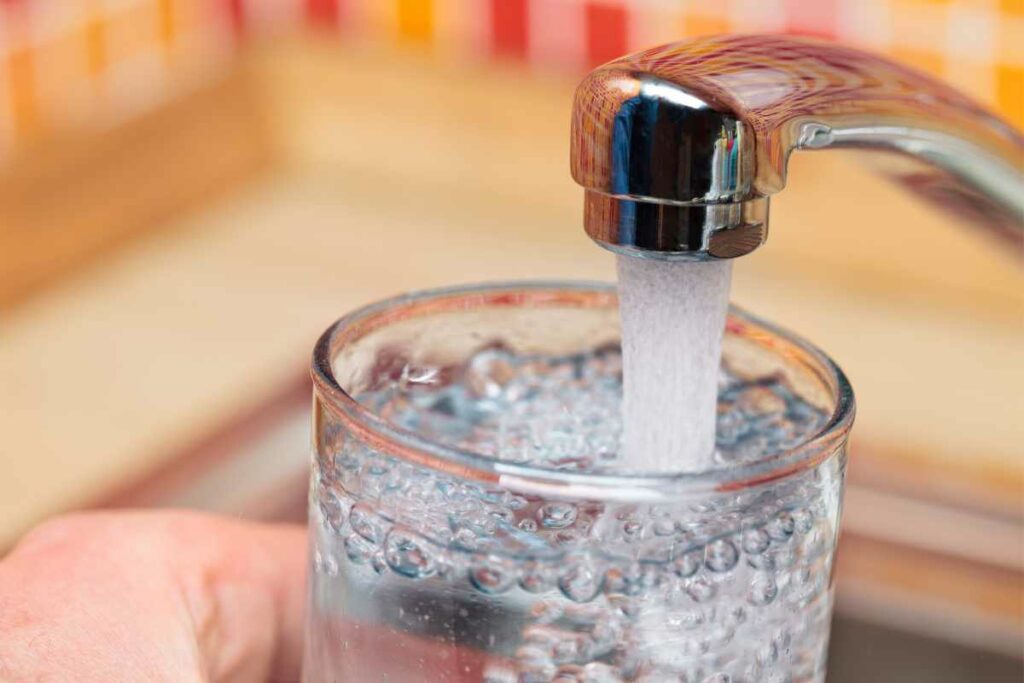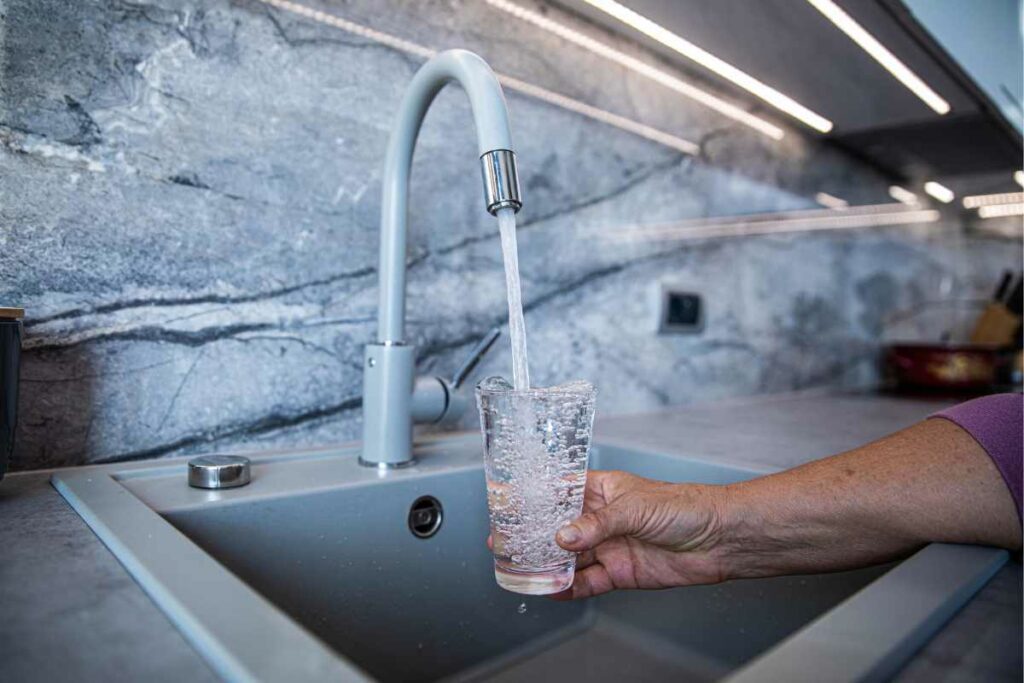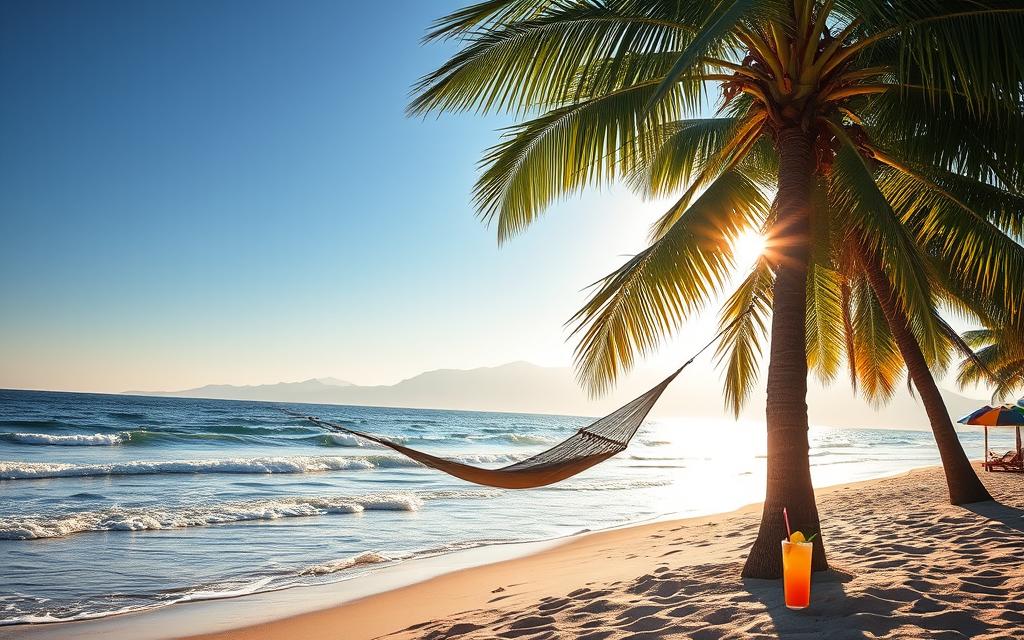When planning a trip to Crete, one common question that arises is whether you can drink the tap water on the island.
The good news is that the tap water in Crete is generally safe to drink, meeting the standards set by the European Union and regularly monitored by the country’s Ministry of Health.
However, the taste of the water may vary due to the naturally present minerals and chemicals in it.
Despite the tap water’s safety, locals and tourists alike often prefer bottled water, primarily due to taste preferences.

It is important to remain aware of water consumption habits and potential environmental impacts when choosing between tap and bottled water on the island.
Remember that the quality of tap water can vary depending on specific locations, and it might be best to opt for bottled water in cases where you’re unsure about the water source.
Additionally, the use of tap water in food and beverage preparation can be a matter of personal preference, as both safety and taste may factor into the final decision.
Key Takeaways
- Tap water in Crete is generally safe to drink and monitored for quality
- Locals and tourists often prefer bottled water due to taste preferences
- Water quality may vary in specific locations, so use discretion when deciding between tap and bottled water
Water Sources in Crete

In Crete, your tap water comes from two primary sources: surface water and groundwater. Surface water primarily includes rivers, lakes, and reservoirs.
Groundwater, on the other hand, is water found underground in porous rock aquifers. Crete relies on both sources for its water supply needs. For example, Chania receives tap water from nearby lakes and reservoirs.
Several rivers flow through Crete, contributing to the local water supply. Some of these rivers include Almiros, Aposelemi, and Geropotamos.
It’s important to note that the tap water in Crete contains minerals and chemicals that can affect its taste but not its safety.
Quality of Tap Water in Crete

Crete’s tap water is treated, chlorinated, and regularly monitored to ensure safety. It adheres to the standards set by the European Union.
The water is considered potable and generally of good quality. Nonetheless, it may have a distinct taste due to the naturally occurring minerals and chemicals in it.
Some of the minerals found in Crete’s water include calcium and magnesium. These minerals contribute to water hardness and may affect the overall taste.
Chlorine is used as a disinfectant to eliminate potential contaminants. A slight chlorine taste or smell might be present, but this indicates that the water is treated.
It’s essential to remember that water quality might change depending on the region. It’s a good idea for you to try the water upon arrival and decide if the taste suits your preference.
For those who prefer not to consume tap water, bottled water is widely available in Crete. You can choose this option if you’re sensitive to the taste or concerned about potential contaminants.
Drinking Tap Water in Crete
You can confidently drink tap water in Crete. The water supply is tested under the European Union’s Drinking Water Directive and is regarded as safe for consumption.
However, it’s worth noting that some locals might prefer bottled water due to taste preferences.
The safety of tap water in Crete is ensured by the island’s Ministry of Health. They carefully treat and monitor the water to ensure it meets their strict standards. This means you can trust the water’s hygiene during your stay.
When it comes to the drinking water in Crete, remember that it’s treated with chlorine to ensure its safety.
Chlorination is a common practice in maintaining water quality, but it might slightly affect the water’s taste. Some visitors prefer purchasing bottled water due to this factor.
Enjoy your visit to this beautiful island with peace of mind, knowing you have options for clean and safe drinking water.
Bottled Versus Tap Water
In Crete, tap water is monitored and tested under the European Union’s Drinking Water Directive. It is generally safe to drink, but the taste might be affected by minerals and chemicals.
Bottled water, on the other hand, is a popular choice due to its taste. However, it comes with downsides, such as higher prices and environmental concerns.
Buying bottled water could be expensive over time, especially for travelers on extended stays.
Plastic waste is a significant issue when relying on bottled water. Single-use plastic bottles contribute to increasing pollution and negatively impact the planet.
Opting for a reusable water bottle helps in reducing plastic waste.
Bringing a reusable water bottle to Crete is a wise decision. This eco-friendly option allows you to refill your bottle with tap water while saving money.
Plus, it’s convenient for exploring the island without worrying about finding bottled water.
Drinking Tap Water in Specific Locations
In Chania, you will find that the tap water is treated and monitored by the Ministry of Health. Therefore, it is considered safe to drink.
Heraklion also has potable tap water since it is regularly monitored and tested under the European Union’s Drinking Water Directive. The water supply in this city is considered safe for consumption.
As for Rethymno, the situation is similar to Chania and Heraklion. The tap water in this location is safe and of good quality, as it falls under the same regulations and monitoring standards.
In Crete’s villages, tap water quality may vary depending on the specific area. To ensure your safety while visiting these smaller towns, consider using bottled water or asking locals for advice on water safety.
For those staying in hotels, tap water quality can differ based on the specific hotel. It is best practice to inquire at the hotel about the safety of their tap water if you’re unsure whether it’s safe to consume.
When traveling to smaller areas like Sissi, keep in mind that the water quality might not be as closely regulated as in the larger cities. As a precaution, opt for bottled water in such locations.
Tap Water for Food and Beverage Preparation

In Crete, tap water is generally safe for consumption and daily use. However, it might have a slightly different taste when compared to bottled water.
When preparing your coffee, using tap water in Crete should not pose any problems. The taste of your coffee might only be slightly affected due to the water’s mineral content.
For preparing salads, washing your vegetables and greens with tap water is acceptable. It is crucial that you thoroughly rinse each ingredient to remove any possible contaminants.
In case you are sensitive to the flavor of tap water or have concerns about its quality, opting for bottled or filtered water is a viable alternative.
Remember, while traveling in Crete, it is always a good idea to stay informed on local water quality reports. This will help you make the best decisions for your food and beverage preparations.
Safety Standards and Monitoring

Crete’s tap water is subject to stringent safety standards set by the European Union. It is constantly monitored and tested to ensure quality.
As a result, the tap water in Crete is typically safe to drink. Monitoring governments consider it suitable for consumption.
However, you may notice a distinct taste due to minerals and chemicals present naturally in the water. This does not compromise its safety, but it may influence your preference.
To maintain a high level of tap water safety, local authorities in Crete work diligently. They enforce treatment, chlorination, and regular monitoring of the water supply.
Ultimately, you can have confidence in the quality and safety of tap water during your stay in Crete. Trust in the rigorous safety standards and monitoring processes as you enjoy this beautiful island destination.
Environmental Impact and Conservation
The environmental impact of water management in Crete is a crucial concern. With ongoing population growth and rising tourism, the island faces increasing pressure on its water resources.
Adequate water management and conservation are essential for maintaining the delicate balance of Crete’s ecosystems. Combating water shortage in Crete requires innovative solutions and collaboration between authorities, locals, and visitors.
You can make a difference by being mindful of your water usage during your stay. Reusing your towels and taking shorter showers are simple ways to conserve water. Refilling your water bottles instead of buying single-use plastic ones can also contribute to reducing the environmental impact on the island.
By practicing sustainable water consumption habits, you’ll help Crete maintain its natural beauty and preserve its resources for future generations.
Remember that every small action counts in contributing to the conservation efforts and reducing the overall environmental impact on this beautiful island.
Water Consumption in Different Seasons
In the summer months, staying hydrated is crucial due to Crete’s warm temperatures and abundant sunlight. Make sure to increase your water intake, as dehydration can become an issue more easily in this season.
During the summer, you may find tap water in Crete to have a slightly different taste due to increased treatment with chlorine. Nonetheless, it is safe to drink and remains an essential part of maintaining good health while on vacation.
Winter in Crete brings a milder climate, meaning you’ll generally need less water than in the hot summer months.
However, it is still important to be mindful of your hydration levels during this season.
Remember that even in cooler temperatures, staying active and spending time outside can contribute to fluid loss. Thus, regular water intake remains key to staying healthy and energized throughout the colder months.
Local and Tourist Perspectives
As a tourist, you might wonder about the safety of drinking tap water in Crete. Rest assured, Crete’s water supply is regularly monitored by the European Union’s Drinking Water Directive.
However, this doesn’t mean all locals drink tap water. Some Greek locals, particularly in rural areas, may prefer bottled water due to taste preferences. On the other hand, cities like Chania, Heraklion, and Rethymno ensure higher quality tap water that locals generally consume.
When visiting Crete, you’ll notice that both local and foreign tourists have different opinions on tap water consumption. American tourists, for example, may not be accustomed to the taste or mineral content of Crete tap water, prompting them to opt for bottled water instead.
Understanding local culture is crucial. Greeks value respect and hospitality, so adapting to their customs can enhance your experience.
For instance, you can ask for recommendations on tap water safety from locals or read forum guidelines on popular travel websites.
Always prioritize your safety and health during your stay, whether that’s through drinking tap water or bottled water.
By considering various perspectives, you can make an informed decision that suits both your preferences and understanding of local customs.
Frequently Asked Questions

Is tap water safe for consumption in Crete?
Yes, tap water in Crete is safe for consumption. It follows EU guidelines and is regularly monitored by Greece’s Ministry of Health.
Can I brush my teeth with tap water in Crete?
You can confidently use tap water to brush your teeth in Crete. The water is treated and chlorinated to ensure its safety and quality.
Is tap water in Greek islands drinkable?
Tap water in Greek islands, including Crete, is generally safe and drinkable. However, the taste may vary due to the presence of minerals and chemicals.
How clean is drinking water in Greece?
Drinking water in Greece is treated and monitored by the country’s Ministry of Health. It is considered to be clean and of good quality.
Is it safe to drink tap water in Agios Nikolaos?
While specific information about tap water in Agios Nikolaos was not found, based on the general safety of tap water in Crete, it is likely safe for consumption.
Can one consume tap water in Malia?
Similarly, based on the safety of tap water in Crete, it is reasonable to assume that tap water in Malia is safe for consumption as well.
You may also like
-
Afrikat: All-inclusive Luxury Catamaran in Gran Canaria Spain
-
Finding the Best Beaches in Bonaire Near Cruise Port Stops
-
What Wind Speed Is Too Windy For The Beach?
-
Flying Virgin Atlantic: Do They Provide Headphones?
-
The Secret Travel Locations Bloggers Haven’t Discovered Yet
-
Stress-Free Breaks: Choosing the Perfect Getaway for Overworked Professionals
-
Inside Secrets: The Quick Guide to Planning Your Dream Vacation



